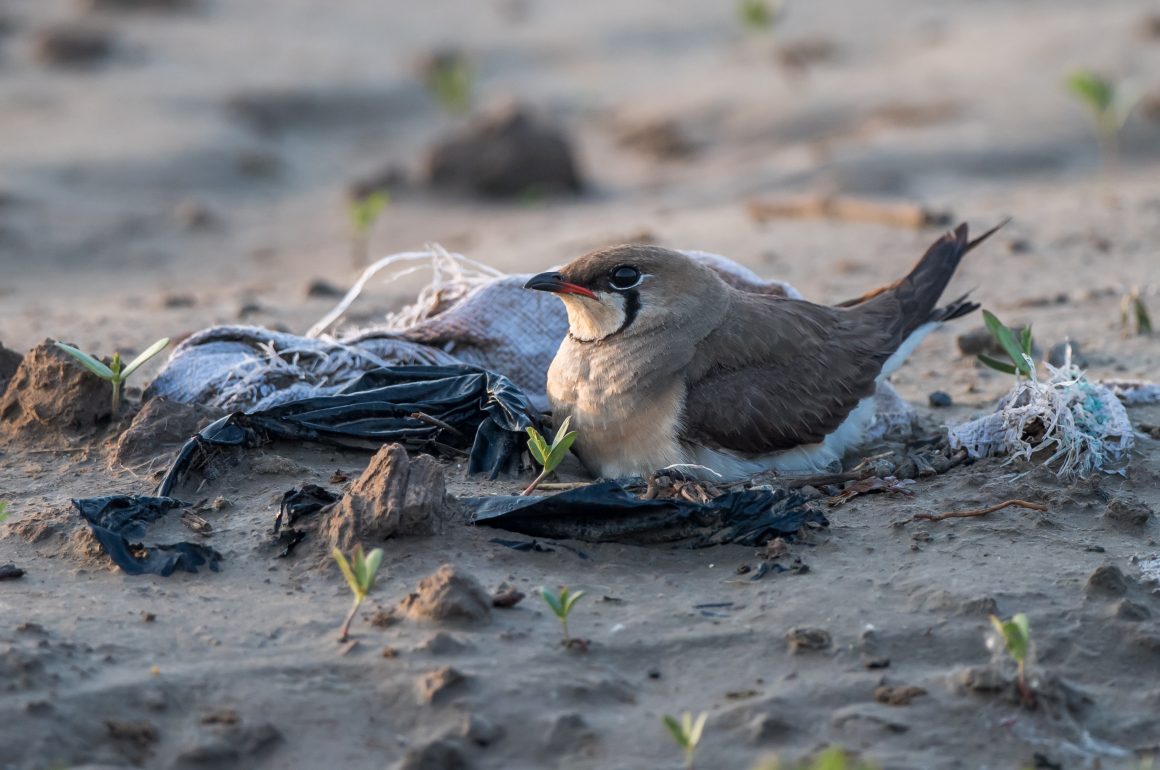
In some places, birds have to live with large amounts of trash in their environment. Fortunately, some have found creative ways to deal with this issue:
Trash indicating food (Yellow-billed Chough, Balangshan, China)
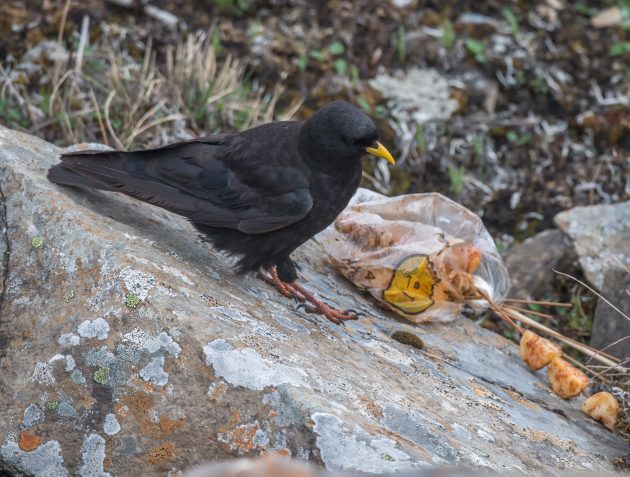
Trash as nesting material (Upland Buzzard, Ruoergai, China). This is actually getting more popular in nesting areas with a high risk of gentrification. In order to deter real estate speculation, residential birds deliberately use ugly materials as part of their nests in order to prevent a local real estate boom.
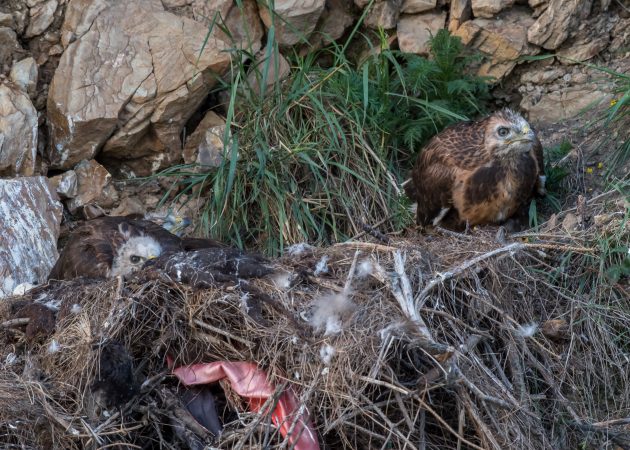
Trash as a vantage point (Striated Heron, Nanhui, China)
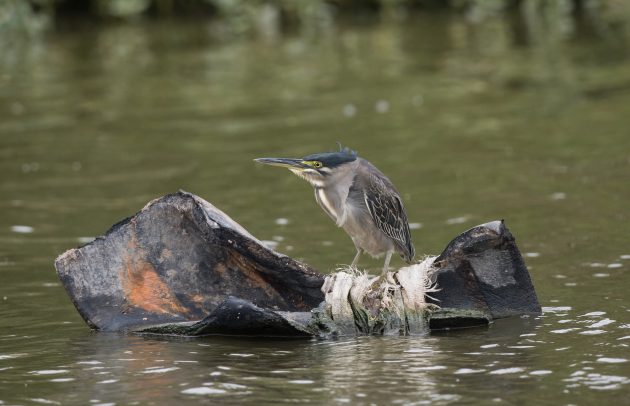
Trash as a bathtub (Siberian Thrush, Nanhui, China). Of course, this requires some luck – the trash has to serve as some kind of vessel and contain some water.
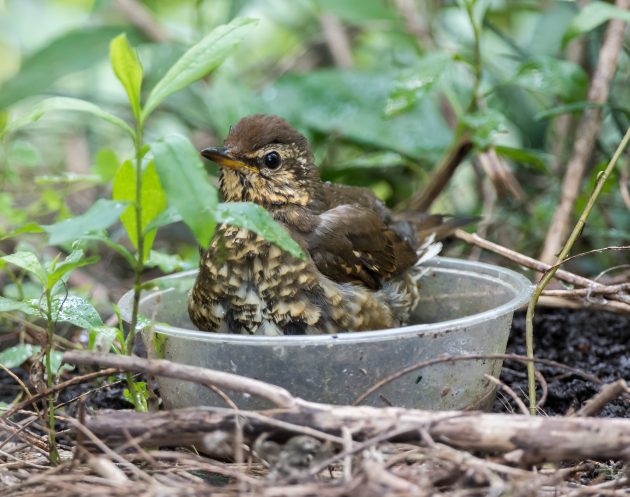
However, in most cases, birds lack the creativity and ingenuity common in humans to utilize trash. The result: Trash without any use whatsoever (Asian Pied Starling, Mumbai)
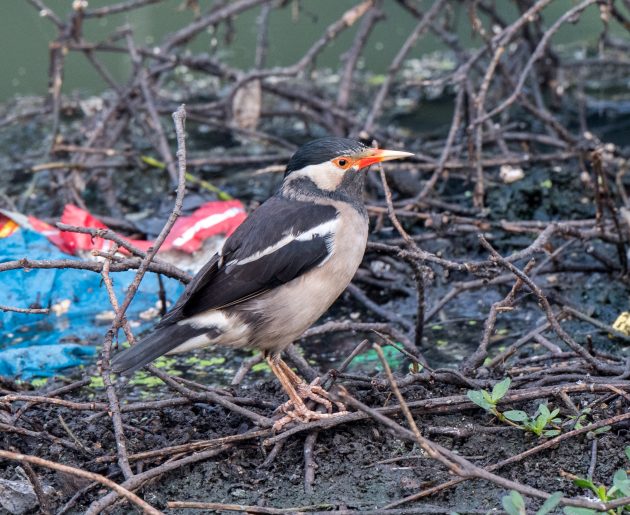
Trash without any use whatsoever (Greater Painted Snipe, Delhi)
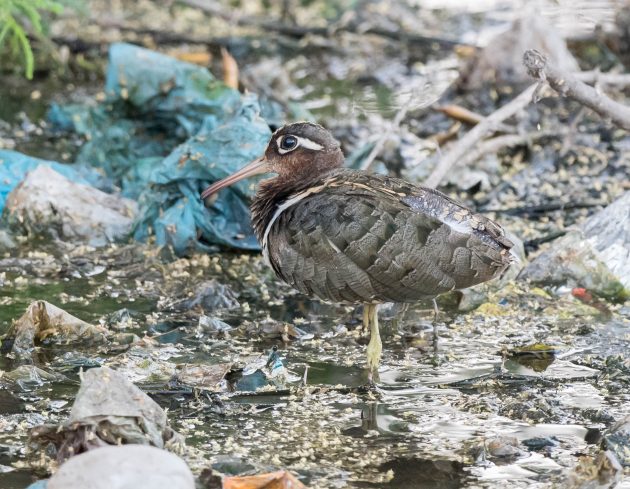
Trash without any use whatsoever (Red-breasted Flycatcher, Nanhui)
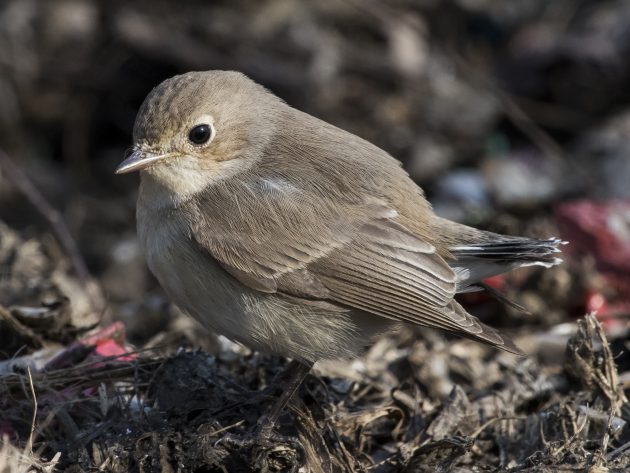
Trash without any use whatsoever (Grey Heron, Nanhui, China)
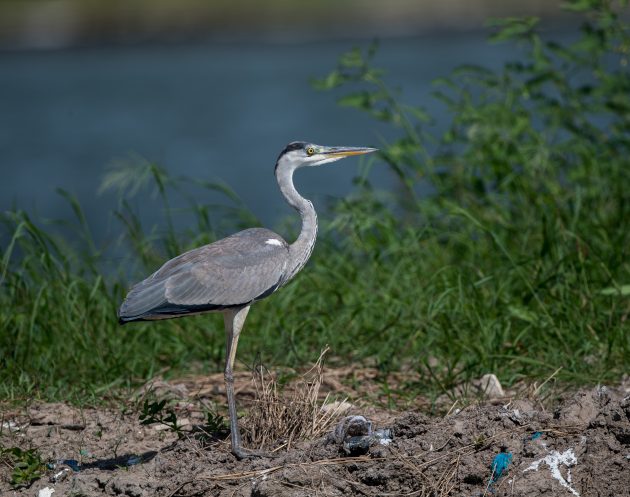
Trash without any use whatsoever (Oriental Pratincole, Tiaozini, China)
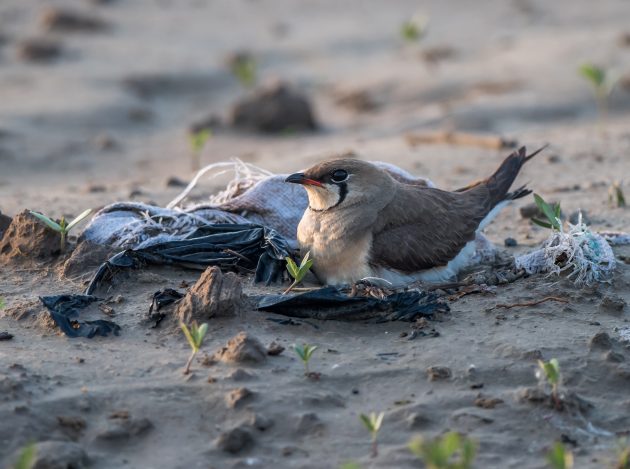
Trash without any use whatsoever (Eurasian Curlew, Tiaozini, China)
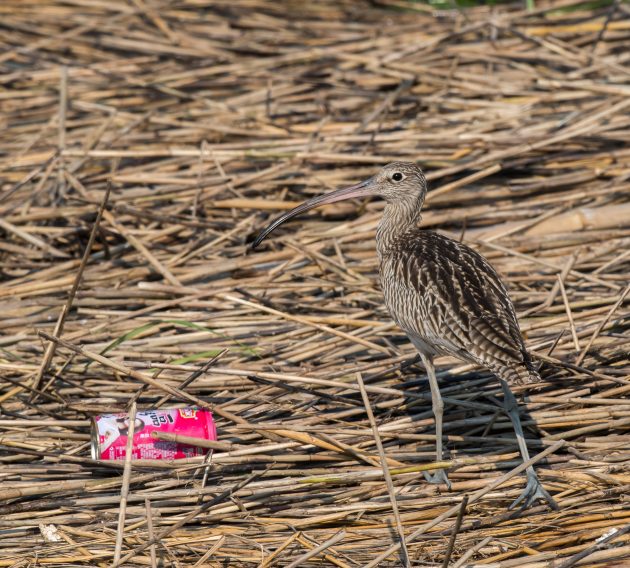
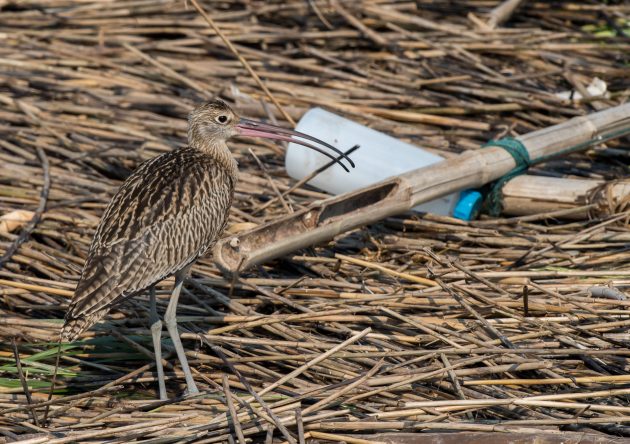
Trash without any use whatsoever (Japanese Night Heron, Chongming, China)
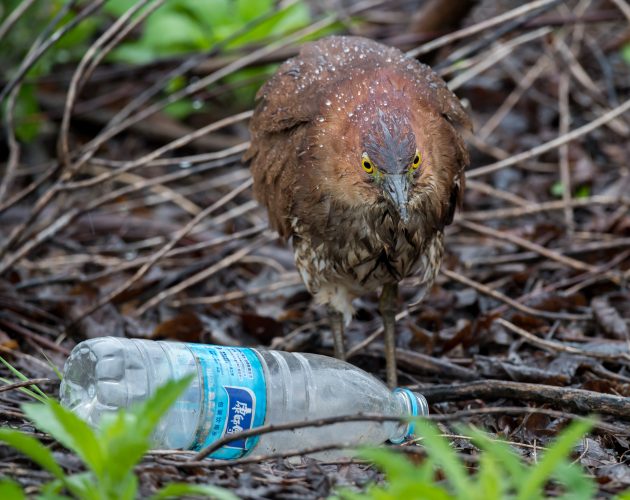
More trash without any use whatsoever (Ibisbill, Jilakou, Qinghai, China)
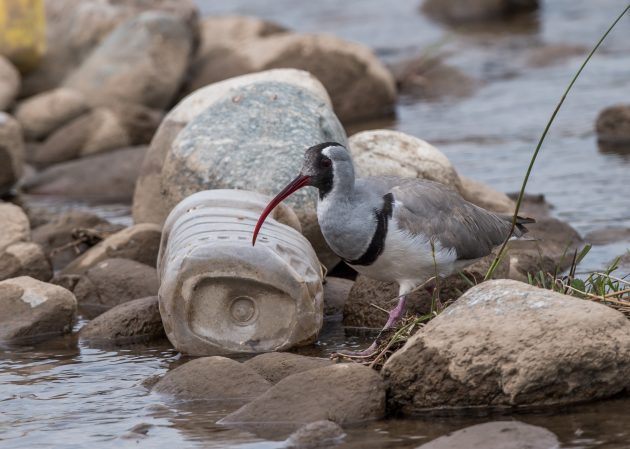
More trash without any use whatsoever (Little Ringed Plover, Fengxian, Shanghai, China)
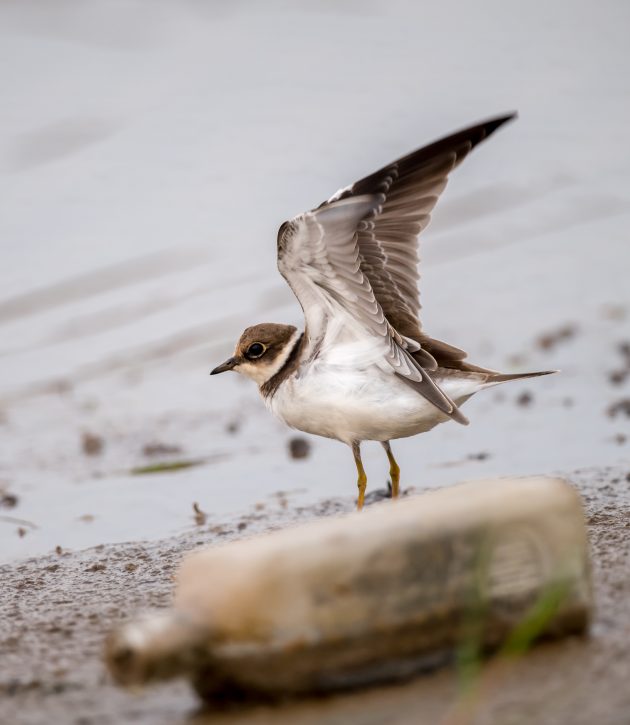
Overall, humanity is not doing a very good job of providing birds with the environment they need, I am afraid. In keeping with this negative spirit, this post ends with lyrics from a song by Craig Finn:
| “You live your whole life just to travel to the place you’re gonna die”. |
Still not sure whether this is deep or trivial. But the song is definitely worth listening to (or downloading).







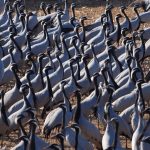
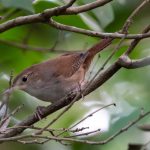

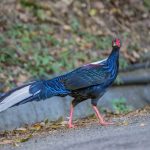
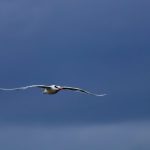
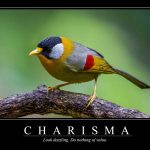
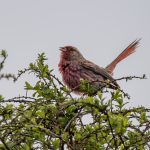
Hi Kai, since I last commented on one of your posts, I’ve had little time for reading but I’m catching up slowly now. This post about trash was interesting and I hope that many read it because more needs to be done to clean up trash no matter where one lives. I’ve noticed that Ospreys (I’m an Osprey enthusiast!) bring all kinds of trash to their nests – including plastic shopping bags and lots of fishing twine. Very dangerous and there have been numerous instances of chicks getting tangled in that stuff. I took a listen to Craig Finn’s song. Very appropriate to your post. Thanks for the introduction to a terrific singer and for your post. Most thought provoking. Tschuss!
Thanks for your comment, Lisa – this is the kind of comment that makes it worth it for me to keep writing posts. Special thanks for appreciating my unasked-for music suggestions.